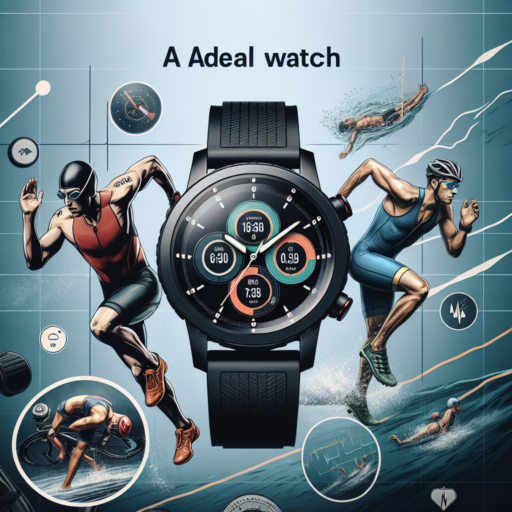What is a good watch to track calories?
Identifying a good watch to track calories involves considering several key features that ensure accuracy, usability, and comfort. In today’s market, many devices offer sophisticated technology to monitor your caloric burn efficiently. These watches not only track your daily activities but also integrate advanced sensors and algorithms to provide a comprehensive overview of your fitness journey.
GPS tracking, for instance, enhances the precision of calorie counting, especially during outdoor activities like running or cycling. Watches equipped with this feature can more accurately determine the distance covered, thereby estimating calorie expenditure with higher accuracy. Additionally, heart rate monitoring is another crucial aspect. Watches that incorporate continuous heart rate monitoring can better assess the intensity of your workouts, offering a clearer picture of your caloric burn throughout the day.
Furthermore, compatibility with various fitness apps also plays a significant role. A good calorie-tracking watch should seamlessly sync with popular fitness applications, allowing you to store, analyze, and monitor your progress over time. This synchronization not only simplifies your fitness tracking but also provides valuable insights into your health and fitness trends, helping you make more informed decisions about your regimen.
Can watches really track calories?
When it comes to wearable technology, the question of how precisely watches can track calories sparks a lot of curiosity. These modern devices, often referred to as fitness trackers or smartwatches, have integrated sensors and algorithms designed to monitor various forms of physical activity and bodily functions. But how reliable are they in tracking calorie expenditure? Let’s delve into the science behind it.
Understanding the Technology Behind Calorie Tracking
The core technology that enables watches to estimate calorie burn is primarily based on a combination of motion sensors and heart rate monitors. Motion sensors, such as accelerometers and gyroscopes, detect movement and intensity, while heart rate monitors gauge the cardiovascular effort contributing to calorie expenditure. By analyzing this data, alongside personal metrics (age, weight, height, and gender), watches compute an estimation of calories burned. However, the precision of these calculations can vary significantly depending on the technology’s ability to accurately interpret the data.
Factors Affecting Calorie Tracking Accuracy
Several factors influence the accuracy of calorie tracking in watches. The type and intensity of activity can drastically impact the device’s ability to provide accurate readings. For instance, activities that involve a lot of hand movement may be more effectively tracked than those that are stationary or involve irregular movements. Calibration and personalisation of the device also play a crucial role; an accurately calibrated watch tailored to the user’s specific metrics will likely offer more precise calorie burn data. But even with these considerations, it’s important to recognize that most watches provide an estimation rather than an exact measurement of calories burned.
What is the best calorie tracker free?
Finding the best free calorie tracker is crucial for those beginning their wellness journey without investing in paid subscriptions. These tools are invaluable for managing dietary habits, monitoring intake, and helping users reach their fitness goals. Several free apps and websites offer extensive databases, detailed tracking options, and integration with other health apps to provide a comprehensive overview of one’s caloric intake.
Features of a Great Free Calorie Tracker
The most effective calorie trackers share certain features that make them user-friendly and reliable. Firstly, a large food database is essential, allowing users to easily log what they eat, including specifics about brands and restaurant items. Additionally, the ability to sync with other fitness apps and devices enhances the tracking experience by providing a broader view of the user’s health and activity levels. Lastly, customizable goals are crucial for personalizing the diet plan according to individual needs and preferences.
Top Recommendations for Free Calorie Trackers
- MyFitnessPal – Known for its extensive food database and robust community support, making it a favorite among fitness enthusiasts.
- Cronometer – Offers detailed nutritional analysis, making it perfect for those who are not only counting calories but also tracking specific nutrient intake.
- SparkPeople – Combines calorie tracking with meal planning, recipes, and fitness tips, providing a well-rounded approach to weight loss and health maintenance.
Each of these free calorie trackers has unique features, but they all aim to streamline the process of monitoring food intake and managing dietary goals. When choosing the best one, consider your specific needs, such as the device compatibility, the ease of logging meals, and whether you’re looking for social features or privacy. Balancing these factors will guide you to the ideal calorie tracker that complements your lifestyle and helps you achieve your health objectives.
What watch tells you how many calories you’ve burned?
Understanding how many calories you’ve burned is crucial for anyone looking to manage their weight, improve fitness, or simply keep track of their daily activities. In the world of wearable technology, there are numerous options available to help you track your calorie expenditure. These watches employ a combination of sensors and algorithms to provide users with insights into their daily physical activities and the calories they burn.
Most fitness watches calculate calorie burn through a mix of heart rate data and personal information such as age, weight, gender, and height. This data helps in creating a personalized profile that tailors calorie tracking to your specific body metrics. Watches use this profile in conjunction with heart rate and movement data collected throughout the day to estimate your calorie burn. This technology enables users to monitor their progress in real-time, encouraging an active and healthy lifestyle.
Key features to look for include:
- Heart rate monitoring: Essential for accurate calorie burn calculations.
- Activity recognition: Watches that automatically recognize and track different types of physical activity provide more accurate data.
- GPS tracking: For those who enjoy outdoor activities like running or cycling, GPS tracking can add another layer of accuracy to calorie burn calculations.
While no device can offer 100% accuracy in calorie burn calculation, advancements in technology have made the data provided by these watches incredibly reliable. Integrating one into your daily routine can be a game-changer for achieving your fitness goals.








